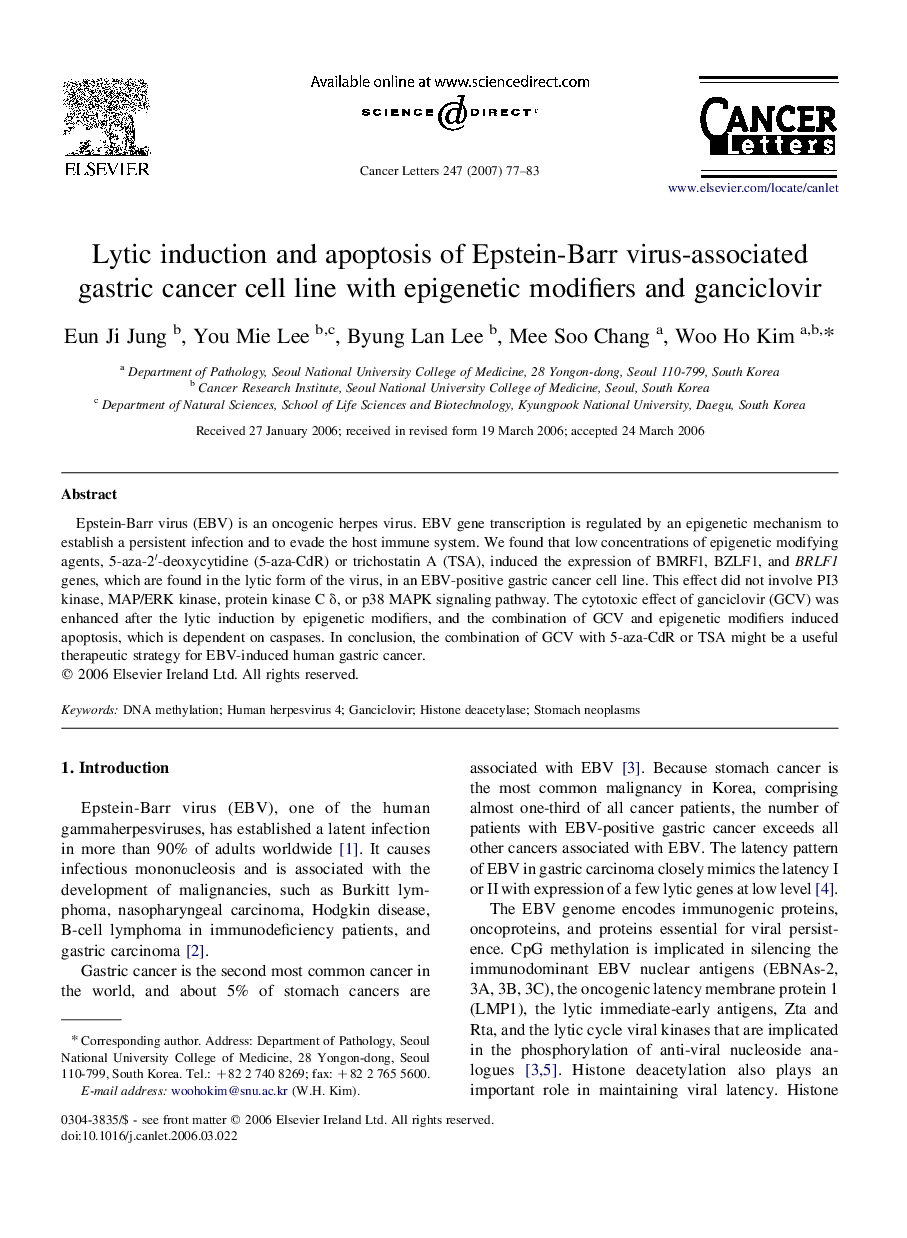| Article ID | Journal | Published Year | Pages | File Type |
|---|---|---|---|---|
| 2116878 | Cancer Letters | 2007 | 7 Pages |
Abstract
EpsteinâBarr virus (EBV) is an oncogenic herpes virus. EBV gene transcription is regulated by an epigenetic mechanism to establish a persistent infection and to evade the host immune system. We found that low concentrations of epigenetic modifying agents, 5-aza-2â²-deoxycytidine (5-aza-CdR) or trichostatin A (TSA), induced the expression of BMRF1, BZLF1, and BRLF1 genes, which are found in the lytic form of the virus, in an EBV-positive gastric cancer cell line. This effect did not involve PI3 kinase, MAP/ERK kinase, protein kinase C δ, or p38 MAPK signaling pathway. The cytotoxic effect of ganciclovir (GCV) was enhanced after the lytic induction by epigenetic modifiers, and the combination of GCV and epigenetic modifiers induced apoptosis, which is dependent on caspases. In conclusion, the combination of GCV with 5-aza-CdR or TSA might be a useful therapeutic strategy for EBV-induced human gastric cancer.
Related Topics
Life Sciences
Biochemistry, Genetics and Molecular Biology
Cancer Research
Authors
Eun Ji Jung, You Mie Lee, Byung Lan Lee, Mee Soo Chang, Woo Ho Kim,
